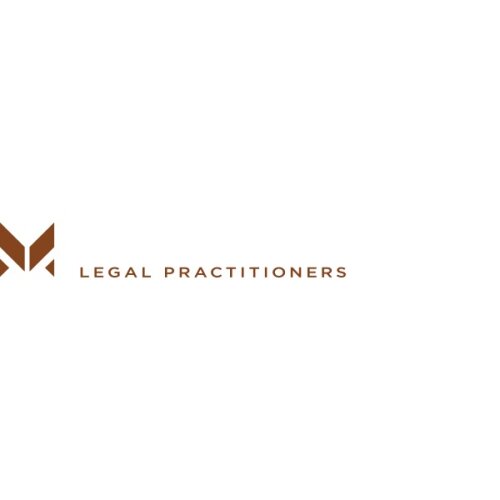Best Restructuring & Insolvency Lawyers in Zambia
Share your needs with us, get contacted by law firms.
Free. Takes 2 min.
Or refine your search by selecting a city:
List of the best lawyers in Zambia
About Restructuring & Insolvency Law in Zambia
Restructuring and insolvency law in Zambia provides a legal framework to help financially distressed companies and individuals manage their debts or, when necessary, orderly liquidate their assets. The goal is to strike a balance between protecting creditors and giving debtors a fair chance to rescue their financial future. These laws set forth processes for companies that wish to reorganize operations to avoid collapse, as well as for those that must close down and distribute assets. The Zambian law also addresses voluntary and court-ordered liquidation, administration, and schemes of arrangement.
Why You May Need a Lawyer
There are many situations where individuals or companies may require legal expertise in restructuring and insolvency. If you are a business owner facing mounting debts and cash flow problems, a lawyer can help you determine whether to pursue restructuring or proceed with liquidation. Creditors may also need legal support to recover outstanding debts or to challenge unfair practices during insolvency proceedings. Additionally, directors and shareholders might need advice regarding their duties, liabilities, and potential personal risks. Insolvency matters are highly technical, and without proper legal guidance, parties risk unnecessary losses or non-compliance with statutory obligations.
Local Laws Overview
The principal legislation governing restructuring and insolvency in Zambia is the Corporate Insolvency Act No. 9 of 2017. This law modernized the insolvency landscape and aligns it more closely with international best practices. Key relevant provisions include:
- Formal procedures for administration (which allows financial restructuring under court supervision)
- Guidelines for voluntary and involuntary liquidation of companies
- Regulations detailing how schemes of arrangement work as a tool for reorganization
- Clear criteria for insolvency, helping identify when companies are unable to pay their debts and must initiate legal processes
- Rules defining priorities for creditor claims and the treatment of secured versus unsecured debts
- Provisions to protect the rights of employees and suppliers during restructuring or liquidation
- Director responsibilities and the possible implications for wrongful trading or mismanagement leading to insolvency
It is also important to note that insolvency law interacts with other statutes such as the Companies Act, Employment Code Act, and sector-specific regulations. Being aware of these interrelated laws is critical when carrying out any restructuring or insolvency procedure.
Frequently Asked Questions
What does it mean for a company to be insolvent in Zambia?
A company is insolvent when it is unable to pay its debts as they fall due or when its liabilities exceed its assets. This can lead to court-supervised processes like administration or liquidation.
What is the difference between restructuring and liquidation?
Restructuring refers to efforts made to reorganize a company’s debts, operations, or structure to allow it to return to profitability. Liquidation is the process of winding up a company’s affairs and selling its assets to pay creditors when recovery is not possible.
Can an individual declare insolvency under Zambian law?
Yes, both individuals and companies can be declared insolvent. The law provides for procedures related to personal bankruptcy alongside corporate insolvency.
What are the responsibilities of company directors during insolvency?
Directors are required to act in the best interests of the company and its creditors. If they engage in wrongful trading or continue operating when insolvency is inevitable, they can be held personally liable.
How does administration work?
Administration is a legal process where an independent administrator is appointed to manage the company, assess its financial position, and attempt to save the business or maximize returns for creditors.
What protections exist for employees during insolvency?
Employee claims for wages and certain other benefits are usually given preferential treatment in insolvency proceedings, though the payment of these claims depends on the availability of funds from the company's assets.
Can creditors initiate insolvency proceedings in Zambia?
Yes, creditors can petition the court to declare a debtor insolvent if the debtor defaults on payment obligations and meets the legal criteria for insolvency.
What is a scheme of arrangement?
A scheme of arrangement is a court-approved agreement between a company and its creditors or members to restructure debts or reorganize company operations, typically designed to avoid liquidation.
How long do insolvency proceedings usually take?
The duration varies depending on the complexity of the company’s affairs, the procedure chosen, and any disputes that arise. Some processes can take several months or even years to complete.
What happens to secured creditors in insolvency?
Secured creditors usually have priority to be paid from the proceeds of the assets over which they hold security before other creditors are paid.
Additional Resources
For further information and assistance, the following resources and organizations can be helpful:
- Ministry of Justice - Zambia
- Registrar of Companies at the Patents and Companies Registration Agency (PACRA)
- The Law Association of Zambia
- Zambia Institute of Chartered Accountants (ZICA)
- Banks and Accountancy firms with dedicated restructuring and insolvency departments
- Local business advisory centers
Next Steps
If you are facing financial distress as a business owner, creditor, or individual, seek advice from a qualified Zambian lawyer who specializes in restructuring and insolvency. Start by compiling all relevant financial documents and records, then schedule a confidential consultation. A legal professional will help you assess your options, outline obligations, and guide you through the appropriate legal procedure. The earlier you obtain legal advice, the greater the likelihood of preserving your interests and achieving an optimal outcome.
Lawzana helps you find the best lawyers and law firms in Zambia through a curated and pre-screened list of qualified legal professionals. Our platform offers rankings and detailed profiles of attorneys and law firms, allowing you to compare based on practice areas, including Restructuring & Insolvency, experience, and client feedback.
Each profile includes a description of the firm's areas of practice, client reviews, team members and partners, year of establishment, spoken languages, office locations, contact information, social media presence, and any published articles or resources. Most firms on our platform speak English and are experienced in both local and international legal matters.
Get a quote from top-rated law firms in Zambia — quickly, securely, and without unnecessary hassle.
Disclaimer:
The information provided on this page is for general informational purposes only and does not constitute legal advice. While we strive to ensure the accuracy and relevance of the content, legal information may change over time, and interpretations of the law can vary. You should always consult with a qualified legal professional for advice specific to your situation.
We disclaim all liability for actions taken or not taken based on the content of this page. If you believe any information is incorrect or outdated, please contact us, and we will review and update it where appropriate.
Browse restructuring & insolvency law firms by city in Zambia
Refine your search by selecting a city.

















